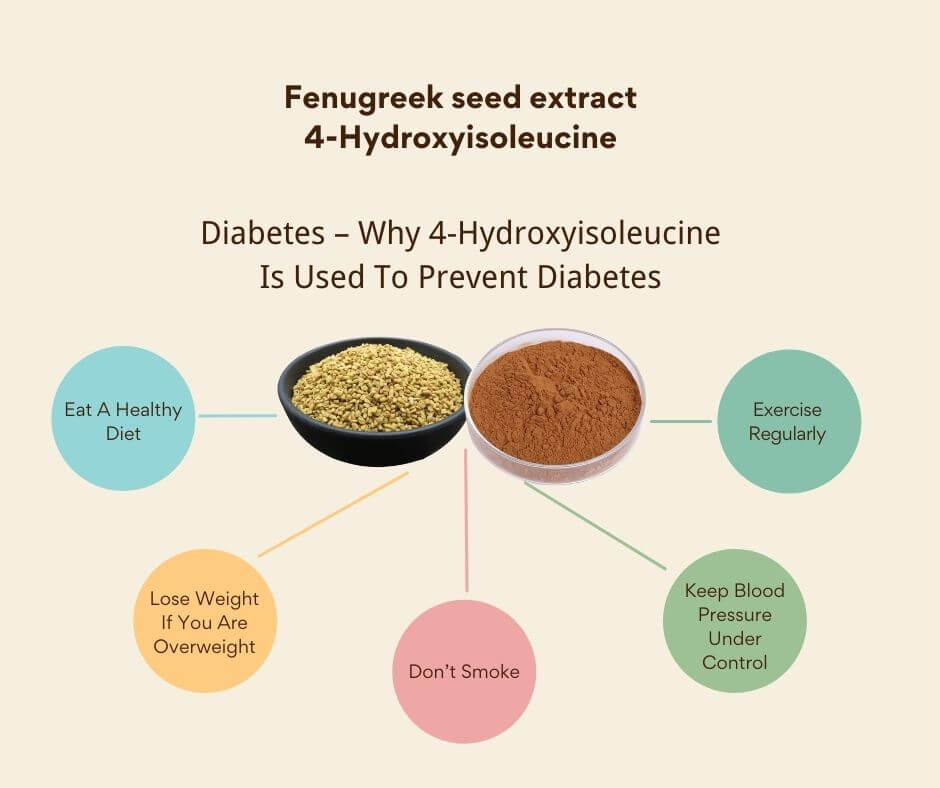Diabetes(4-Hydroxyisoleucine) is a disease in which the body does not produce or properly use insulin. As a result, sugar builds up in the blood instead of being broken down for energy. This can cause many health problems, such as heart disease, blindness, kidney failure, etc. Diabetes affects over 300 million people worldwide.
The most common causes of diabetes are genetics and lifestyle choices. However, other causes may also lead to diabetes, including cancers like pancreatic cancer or brain tumors. You will now look into what can cause this disease in more detail and how 4-Hydroxyisoleucine can help in the disease.
The Common Causes Of Diabetes
The most common kind of diabetes is Type 2 diabetes, which means that it is related to high levels of glucose in a person’s blood and a lowered ability to use insulin correctly. Since the most important cause is weight, a person can control his or her diabetes by losing that weight. The more weight you lose, the better the blood sugar levels will be in the body.
Another cause of diabetes is age, a major factor in this disease. People, in particular, are susceptible to Type 2 diabetes generally when they reach above fifty. This is because as people get older, they begin to have more difficulty producing enough insulin on their own. They then have to take drugs such as 4-Hydroxyisoleucine to increase their insulin output.
People who have become obese are also much more likely to develop diabetes than those who keep their weight under control. That’s because extra fat in a person’s body means extra stress on the pancreas. After all, it must produce more insulin than usual to keep those blood sugar levels down.
How Does 4-Hydroxyisoleucine Help In Treating Diabetes?
Many people with type 2 diabetes are on metformin or one other oral drug to control their blood sugar. But there is another option that is using 4-hydroxyisoleucine. It works because it’s an amino acid that helps your cells make energy from oxygen in the air you breathe instead of from glucose in your blood. It is similar to two other amino acids that prevent insulin resistance and raise blood sugar levels: arginine and ornithine. While metformin and other diabetes drugs can be taken daily as part of a healthy lifestyle and diet, 4OHEI is given by injection.
But why take it? If all you need to do is eat a healthy diet, exercise, and stop smoking, people don’t need medical help. Because people who have diabetes have had all sorts of treatments with no significant improvement, supplements such as 4-hydroxyisoleucine have become important.
Other Ways To Prevent Diabetes
- Eat A Healthy Diet
Good nutrition is essential for good health, prevention of many diseases, and maintaining a healthy weight. Foods like fruits and vegetables contain antioxidants, which protect cells from damage that can lead to disease.
- Exercise Regularly
Exercise is an excellent way to stay fit and increase your energy levels. Physical activity that is moderately intense, such as walking or cycling, improves the way you feel and lowers your risk of developing illnesses such as heart disease, stroke, high blood pressure, and diabetes.
- Lose Weight If You Are Overweight
Being overweight or obese is one of the most significant risk factors for type 2 diabetes. If you are overweight, it may be harder for your body to use insulin effectively. Reducing your weight by even a small amount can result in lower blood glucose levels and a reduced risk of developing type 2 diabetes. So apart from taking 4-Hydroxyisoleucine, exercise is a better option.
- Don’t Smoke
Smoking can damage your blood vessels, making it difficult for your body to regulate its blood glucose levels. If you smoke, quitting now could cut your risk of diabetes in half.
- Keep Blood Pressure Under Control
Keeping blood pressure under control is one of the most important ways to prevent type 2 diabetes. Having high blood pressure increases the risk of heart disease and stroke, which are the main causes of death among people with diabetes.
Even a modest reduction in blood pressure can reduce that risk. Talk with your healthcare provider about what might work best for you.








